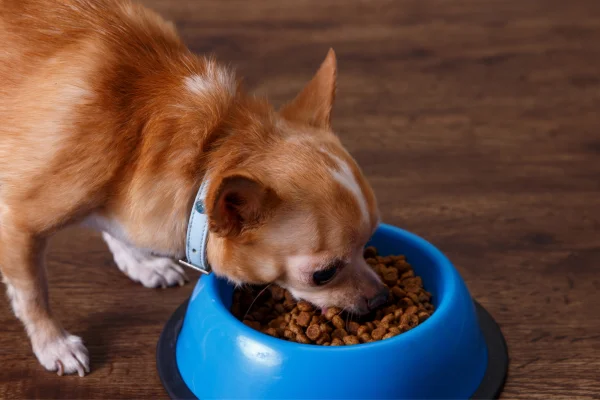Nothing beats the unconditional love our pets give us. They are our best companions when we need the presence of a silent soul who just understand our emotions effortlessly. They help reduce our stress level, boost our mood, keep us active and teach us to be compassionate and empathetic towards other beings. For the past few years, they have also been employed to provide therapy for individuals with ADHD, ASD, social anxiety etc. Dogs, specifically, are very mindful in the way they just sit and be loving.
According to Forbes pet owner statistics – Dogs are the most popular household pets in the USA, owned by 65.1 million families. There is nothing we pet owners would not do to help extend the life of our beloved pets. In recent years, dog owners have become more conscious and interested in the diet of their furry babies.
There is a wide variety of pet food products such as kibble, treats etc. A new classification of pet products named – “grain free pet products” are now available on the market, but what is it?; how is it beneficial for pets?; How is it better than the conventional pet food we are used to?
When evaluated, dog food labels contain grains like; corn, wheat, barley, oats, rye, soy etc.
Benefits of grain free diet for dogs
- Beneficial for dogs with grain allergy
There is a possibility of unknown allergies in dogs. Gluten, a certain protein found in wheat, rye, oats etc. is one of the common allergies. Hence by omitting grains, we are doing a huge favour for dogs. - Helps manage weight
Grains are rich in starch. Starch may result in weight gain and high blood sugar levels. Weight management in dogs is comparatively complicated in relation to humans. - Healthy skin and coat
A diet rich in grains can be a contributing factor in itching and flaky skin, dull and less glossy skin. - Significant nutritional balance
Grain free dog food provides optimal carbohydrates, proteins and carbohydrates. This is because pet food manufacturers utilise grains as cheap bulking agents. - Easily digestible
Amylase is an important enzyme required for digestion of starch and carbohydrates. Deficiency of which is not identified in dogs until later years. In such cases, it may result in gastro-intestinal issues like bloating, constipation etc.
Disadvantages of grain free diet for dogs
- Not suitable for picky eaters
Certain breeds, especially the toy breeds, are very fussy in terms of food. It is not necessary for the furry baby to like the diet. They may skip meals multiple times before they accept the diet. - Very expensive
It is not sustainable in the long term since it is expensive. The cost is owed to human grade ingredients like lentils, fruits, vegetables etc. - Weight gain
Most grain-free feeds are unpopularly still higher in carbohydrate% compared to protein%. This can lead to weight gain. - Not suitable for dogs with sedentary lifestyle
Older and less active dogs do not require the same energy requirements as their counterparts. Being overweight can affect the mobility of the furry baby. - Heart issues – There is increasing evidence that a diet void of grains can lead to dilated cardiomyopathy and ultimately heart failure.
Factors to consider when opting for a grain free diet
- Your dog’s lifestyle
The nutrition requirements of each dog varies with breed, age, physical activity level. - Health conditions
It is necessary to ensure our pet is free of any health issues before choosing the grain free diet. - Eating habits
Each dog has a different diet preference. Changing the diet for picky eaters may not necessarily be a smart choice. - Expert’s advice
It is advised to consult a certified veterinarian or a canine nutritionist before changing the pet’s diet. They may also provide suggestions for brands and recipes.
Introducing the grain free diet for dogs
Step 1 – Consult a veterinarian/canine nutritionist
Step 2 – Start slowly by mixing the food in your dog’s old food first
Step 3 – Slowly increase the ratio of the new food to the old food
Step 4 – Stop if you observe any digestive discomforts in your dog
As mentioned above, there are both pros and cons that come with grain-free diets for dogs. It ultimately comes down to you, your pet and your consultant whether you would like to opt for the grain free diet or not.
Mayuri,
Clinical Dietitian, Simplyweight













